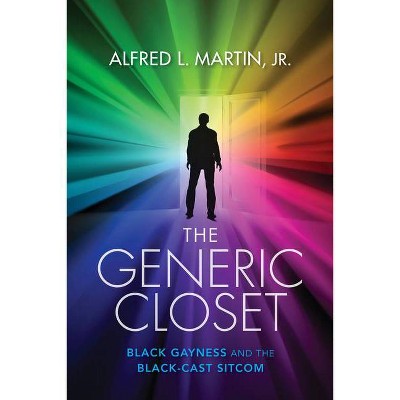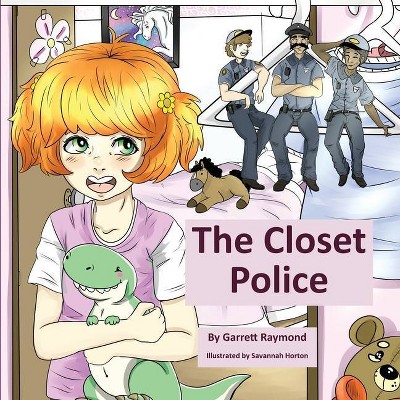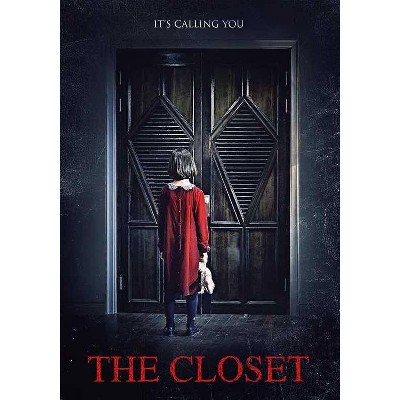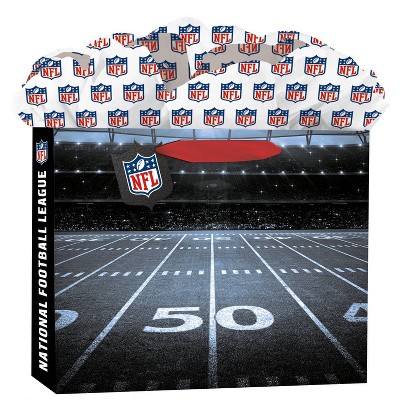The Generic Closet - by Alfred L Martin (Paperback)

Similar Products
Products of same category from the store
AllProduct info
<p/><br></br><p><b> About the Book </b></p></br></br><p>Drawing from 20 interviews with credited episode writers, key show-runners, and Black gay men, <i> The Generic Closet </i>situates Black-cast sitcoms as a unique genre that uses Black gay characters in service of the series' heterosexual main cast and deconstructs the concept of a monolithic Black audience.<p/><br></br><p><b> Book Synopsis </b></p></br></br><p>Even after a rise in gay and Black representation and production on TV in the 1990s, the sitcom became a "generic closet," restricting Black gay characters with narrative tropes.</p><p>Drawing from 20 interviews with credited episode writers, key show-runners, and Black gay men, <i> The Generic Closet </i>situates Black-cast sitcoms as a unique genre that uses Black gay characters in service of the series' heterosexual main cast. Alfred L. Martin, Jr., argues that the Black community is considered to be antigay due to misrepresentation by shows that aired during the family viewing hour and that were written for the imagined, "traditional" Black family. Martin considers audience reception, industrial production practices, and authorship to unpack the claim that Black gay characters are written into Black-cast sitcoms such as <i>Moesha</i>, <i>Good News</i>, and <i>Let's Stay Together</i> in order to closet Black gayness.</p><p>By exploring how systems of power produce ideologies about Black gayness, <i>The Generic Closet</i> deconstructs the concept of a monolithic Black audience and investigates whether this generic closet still exists.</p><p/><br></br><p><b> Review Quotes </b></p></br></br><br><p>In <i>The Generic Closet: Black Gayness and the Black-Cast Sitcom</i>, Alfred L. Martin Jr. embarks on a detailed case study of five U.S. shows that aired between 1996 and 2014 and outlines the circumscribed roles available to Black gay characters. Martin unpacks the television industry's imagination of Black audiences as monolithically intolerant of homosexuality, traces the implications of these industrial assumptions from the writers' room to the screen, and concludes with the voices of Black gay viewers themselves. . . . Martin's work is timely given the present climate of growing awareness of structural racism, especially in the United States. This book also underscores the need for intersectional analysis, highlighting the disparate conditions of representation for White gay characters and Black gay characters during the so-called Gay '90s and the problematic depiction of the coming out narrative as universal to the LGBTQ+ experience, despite studies showing that it is less salient to the Black LGBTQ+ experience.</p>--Aiden James Kosciesza "International Journal of Communication"<br><p/><br></br><p><b> About the Author </b></p></br></br><p>Alfred L. Martin Jr. is Assistant Professor of Communication Studies at the University of Iowa.</p>
Price History
Cheapest price in the interval: 23.99 on October 22, 2021
Most expensive price in the interval: 23.99 on November 8, 2021
Price Archive shows prices from various stores, lets you see history and find the cheapest. There is no actual sale on the website. For all support, inquiry and suggestion messagescommunication@pricearchive.us



















